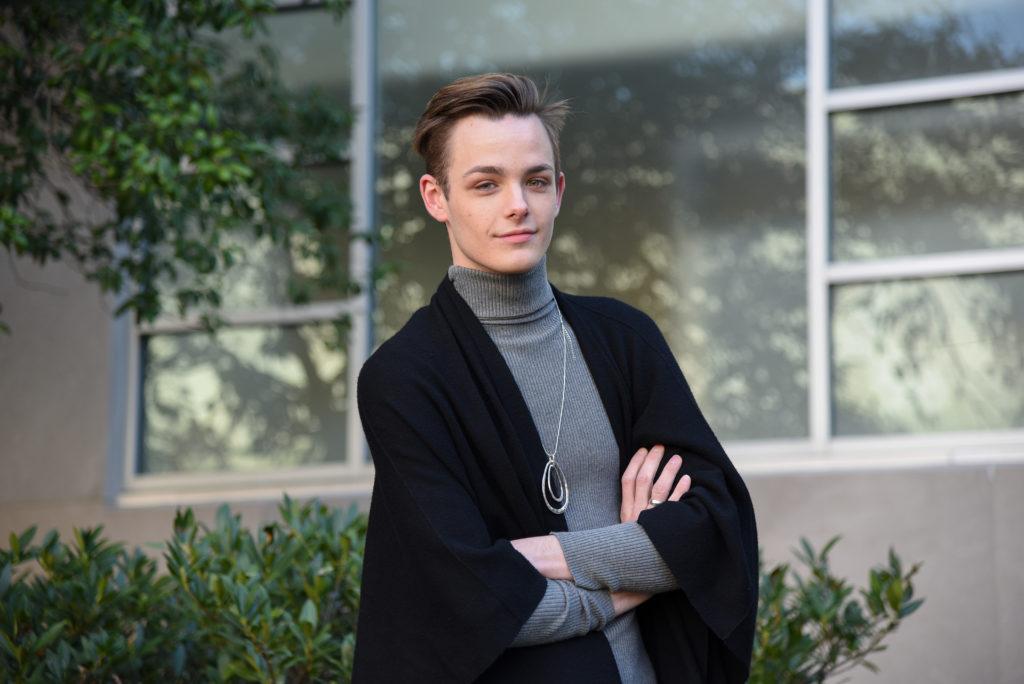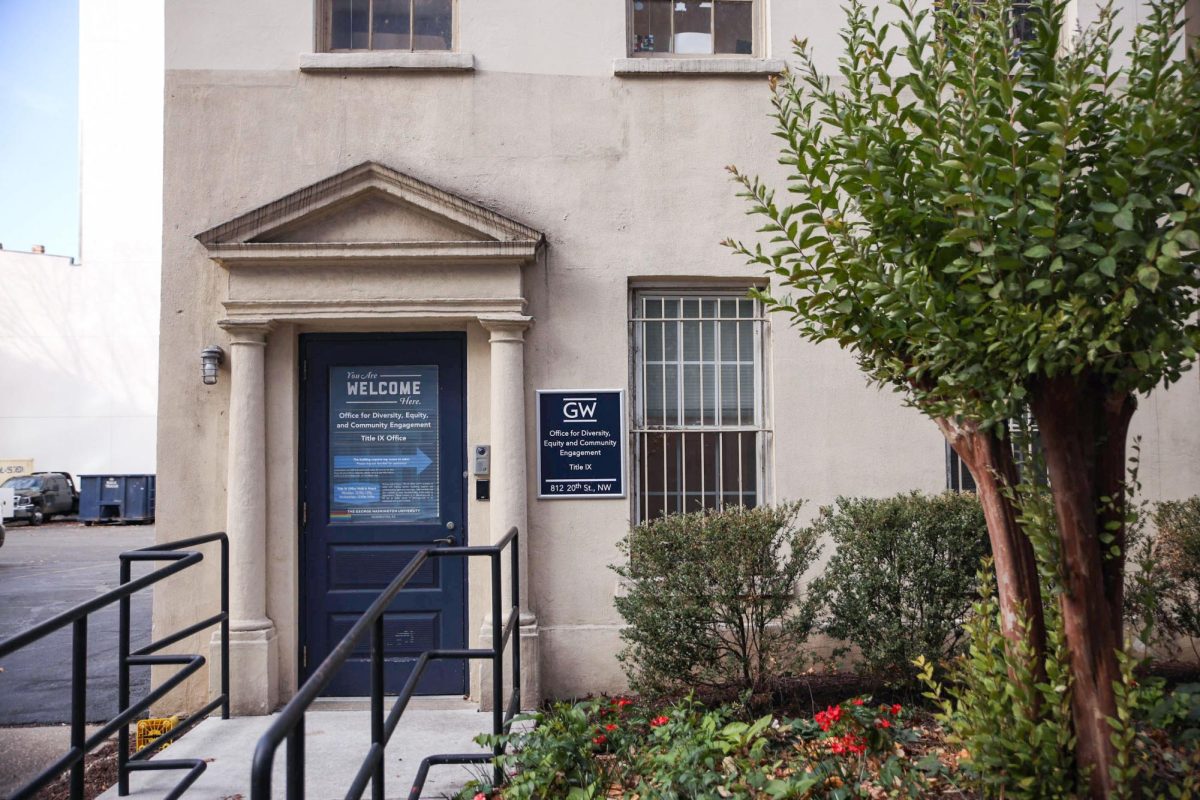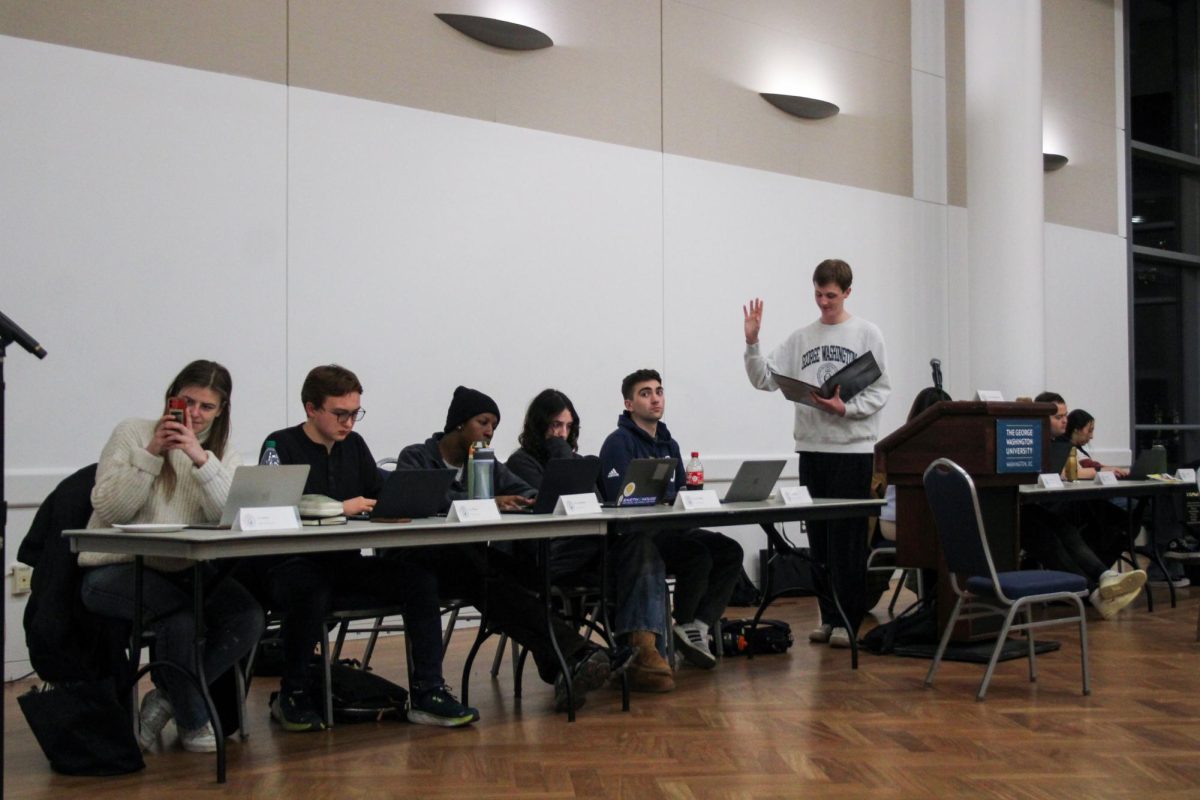A Student Association cabinet member is joining the race to lead the organization.
Sophomore and SA Vice President for Public Affairs Drew Amstutz’s platform advocates for a one-on-one adviser system in the financial aid office and for officials to include student organization leaders in faculty hiring conversations. Amstutz said he would push for gender-inclusive housing options for freshmen, ensure future buildings are built to LEED-sustainable certification standards and make GW more financially accessible for students of different economic backgrounds.
“I love GW through and through, and I’m so very glad that I chose this institution and got to leave Indiana, where I’m from, to come here,” Amstutz said. “I really feel that we are missing the ball when it comes to making sure it’s accessible to all – that this University is accessible to all.”
Sophomore and Students for Indigenous and Native American Rights President Georgie Britcher and junior and SA Sen. Howard Brookins, U-at-Large, have also announced their bids for the presidential position.
Amstutz said he intends to restructure the Office of Financial Aid, implementing a student task force responsible for jobs like uploading documents and student profiles into the financial aid system. He said uploading documents in a timely manner would speed up the reviewing process, which currently can take about three or four weeks.
The financial assistance office is currently searching for associates to oversee the creation of a student finance task force to gather feedback about the office’s performance, more than a year after administrators said they were launching the group. The office implemented a 24/7 hotline last year for students and families to ask questions about financial aid.
Amstutz said he will communicate with Michelle Arcieri, the executive director of student financial assistance, to create a “case manager system” for students to work with a single financial adviser so students do not need to re-explain their financial situation to different employees.
“I found that one of the hardest things for students is financial aid — it’s a very complicated process,” he said. “And it is a miracle if you can explain your situation correctly to one person and have everything figured out. But then to have to go in and figure it out on Monday and then re-explain everything on Tuesday, that is very draining and hard to do.”
Amstutz said he will continue to work with administrators like Jordan West, the director of diversity, equality, community and engagement, to involve more diverse student organizations in conversations when new faculty members are hired. He said students must have “a seat at the table” when officials are hiring if the University intends to diversify the faculty body.
West implemented extra diversity training for students and administrators and worked with faculty to update their syllabi to emphasize inclusion in the classroom in October.
Amstutz said he will work to expand gender-inclusive housing, like the Allied in Pride affinity, to help first-year students who identify with the LGBTQ community find a community. A student requesting gender-inclusive housing must have a roommate picked out if they do not identify with the gender assigned to them at birth, even as a freshman, according to the University’s housing website.
“That’s something that I think we need to change, especially for first-year students,” he said. “Coming into GW or any college is hard – coming into GW or any college as a trans student is a million times harder, and to try and to find that perfect roommate in such a selective group is just not something we should be expecting of our students.”
He said he will continue conversations with Director of Residential Education Charlotte McLoud Whitaker and Assistant Director of Residential Education Lauren Murphy – administrators he has worked with as a resident adviser – to ensure housing is more equitable and gender-inclusive.
Amstutz said he would advocate for more gender-inclusive bathrooms like the one officials are currently constructing in the Marvin Center, and discuss the feasibility of upgrading GWorld photos without incurring a $25 fee for students who don’t identify with their original photo.
He added that he is speaking with Seth Weinshel, the director of housing, about how University buildings obtain LEED status. Amstutz said he will encourage officials to ensure future buildings, like highly-anticipated renovations to Thurston Hall, uphold silver or gold LEED statuses to help GW prioritize sustainability and work toward divesting from fossil fuels.
Three percent of the University’s endowment is invested in fossil fuel companies.
“That’s another central thing for me – to include students in the process of ensuring that we are being sustainable because GW is a school of changemakers,” he said.
Earlier this month, Sunrise GW – a student-led organization Amstutz is a member of that lobbies the University to become more sustainable – marched on F Street to deliver a letter to officials calling for fossil fuel divestment.
“There’s so many good people in the administration, they just don’t know what we want,” Amstutz said. “And I think that we need to really rally behind and embrace this 200th anniversary as a time for asking for change.”








